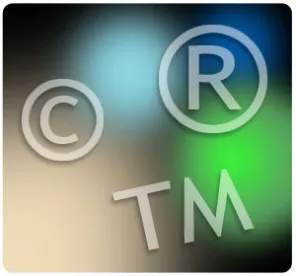The Supreme Court unanimously held on June 24, 2019, that the Lanham Act’s prohibition on registering “immoral” trademarks with the U.S. Patent and Trademark Office (USPTO) infringes upon the First Amendment because such a prohibition is “viewpoint-based.” Interestingly, however, the Court split 6-3 in holding that the Lanham Act’s prohibition on the registration of “scandalous” trademarks also infringes the First Amendment.
Section 1052(a) of the Lanham Act states that the registration of a trademark shall be refused if it consists of “immoral, deceptive, or scandalous” matter. The crux of the issue in Iancu v. Brunetti involved a trademark of seemingly immoral and scandalous content. Erik Brunetti sought a trademark registration for the mark FUCT used in connection with a clothing line. Mr. Brunetti argued that the mark was an acronym for “Friends U Can’t Trust” and should be read as separate letters: F-U-C-T. However, when he attempted to register his trademark with the USPTO, both the examining attorney and the Trademark Trial and Appeal Board (TTAB) concluded that the trademark in question was “vulgar.” The TTAB went a step further and said the proposed trademark also had “decidedly negative sexual connotations.”
Upholding the precedent established just two terms ago in Matal v. Tam, the Supreme Court once again held that the Lanham Act’s prohibition on registration of marks deemed “immoral” or “scandalous” was, in essence, government discrimination against speech based on the ideas or opinions it conveys. In Matal, the Court invalidated the Lanham Act’s bar on the registration of “disparaging” trademarks because it limited speech on the basis of viewpoint. Writing the majority opinion in Iancu, Justice Kagan pointed to the “viewpoint-discriminatory” application of Section 1052(a) to immoral or scandalous marks. She noted, for example, that the USPTO rejected the mark BONG HITS 4 JESUS because “Christians would be morally outraged by a statement that connects Jesus Christ with illegal drug use,” but approved the mark PRAISE THE LORD for use in connection with a game because such a message “suggested faith rather than blasphemy.”
Chief Justice Roberts, Justice Sotomayor, and Justice Breyer differentiated between the prohibition of marks deemed “immoral” versus marks deemed “scandalous.” While they agreed with the majority that prohibition of a trademark registration because the mark was deemed immoral infringes the First Amendment, they severed the definition of scandalous from this conclusion.
“Scandalous,” the Chief Justice stated, “need not be understood to reach marks that offend because of the ideas they convey; it can be read more narrowly to bar only marks that offend because of their mode of expression—marks that are obscene, vulgar, or profane.” Justice Sotomayor agreed that a restriction on trademarks containing obscenity, vulgarity, or profanity is viewpoint-neutral, and therefore not unconstitutional.
The majority rejected the dissent’s dissection, stating that the “category of scandalous marks includes both marks that offend by the ideas they convey and marks that offend by their mode of expression.” In other words, the Lanham Act’s inclusion of the broad term “scandalous” cannot be read to limit the definition of scandalous marks, as the government argued, to marks that are considered “lewd, sexually explicit, or profane.” Citing United States v. Stevens, Justice Kagan observed that the Supreme Court “will not rewrite a law to conform it to constitutional requirements.”
While the use of immoral or scandalous marks in commerce was possible prior to this holding, as the Court observed, owners of such marks may now seek to benefit from the additional protections of federal trademark registration. For those worried about profane marks flooding the USPTO, applications can still be rejected on other statutory grounds. For example, the USPTO can refuse to register a mark on failure-to-function grounds, meaning that the mark is incapable of functioning as an indicator of source. The USPTO already recognizes that slogans, terms, and phrases used by various parties to convey ordinary or familiar concepts or sentiments do not function as trademarks and refuses to register them. Moreover, the overall number of immoral or scandalous marks might ultimately dwindle, as only so many owners can obtain registrations before the USPTO refuses new ones for “likelihood of confusion” with prior registrations. On the other hand, this holding may result in the “coarsening of our popular culture,” as Justice Alito frets in his concurrence.
The Justices took every opportunity to wink at Congress throughout the opinion. Justice Alito blatantly nudged, stating that this decision “does not prevent Congress from adopting a more carefully focused statute that precludes the registration of marks containing vulgar terms that play no real part in the expression of ideas.” Thus, the Court presented a roadmap for a prohibition on registrations that it would uphold.





 />i
/>i

